DVD screen captures of the 1949 Robert Wise film noir masterpiece, "The Set-Up"
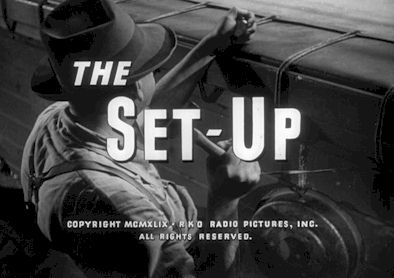
The film starts with a curious silence - then a bell (actually, a car's brake drum) starts a fight shown during the title credits.
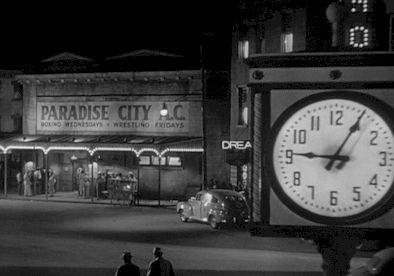
Welcome to the ironically-named Paradise City, home of the Athletic Club. Boxing on Wednesday nights, wrestling on Friday nights.
As is the case with many films noir, the setting is as important as any of the characters. By the time this film is over we will know where the
alleys are, and where the people hang out. Note the time; this clock will be seen again in the closing shot.

Our protagonists have taken up temporary residence in the Hotel Cozy - a dump.
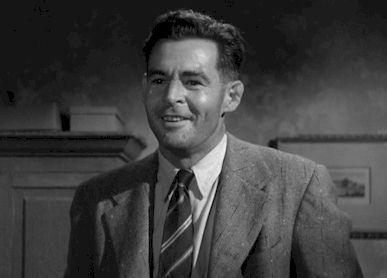
Meet Stoker Thompson (Robert Ryan), aging boxer. Like many noir protagonists, he's looking for the decisive
lucky break that'll put him in the big time. But he's doomed without knowing it. His manager, who expects him
to lose anyway, has agreed for him to take a dive in the third round. He just hasn't told Stoker.

Stoker's upset wife Julie, played by noir stalwart Audrey Totter.
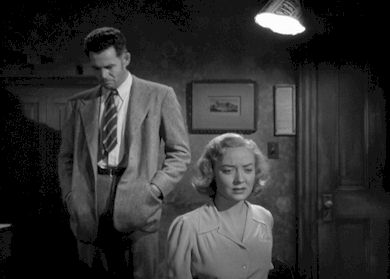
Stoker and Julie are having a disagreement about his choice of occupation:
"Maybe you can go on taking the beatings, but I can't."
She has a seat at the fight, but declines to attend, not wanting to see her husband
once again pounded into unconsciousness.
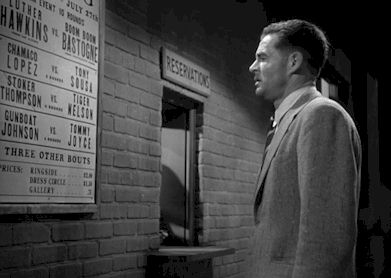
Stoker outside of the Athletic Club. Despite what the sign suggests, Stoker's bout is at the end.
Perhaps a bad omen: somebody had struck a match across his name.
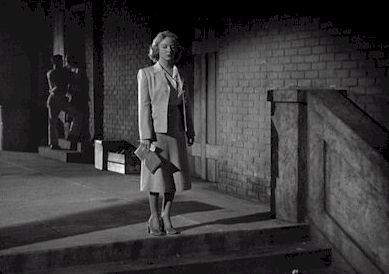
After Stoker leaves for the fight, Julie decides instead to take a walk and reconsider.
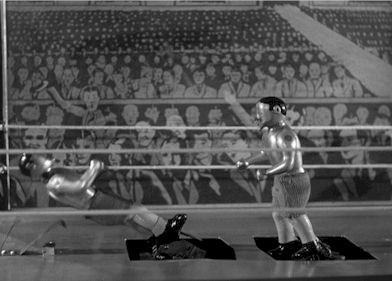
But in the Dreamland arcade, the games only remind her of the punishment her husband endures.
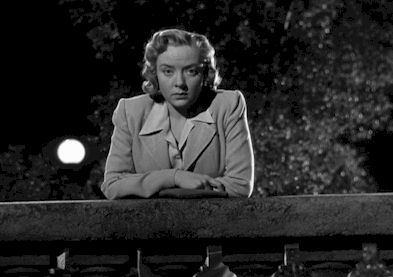
On a bridge over trolley car tracks, Julie mentally debates attending the fight.
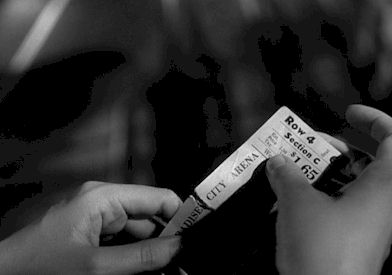
She finally tears up her ticket, and the pieces flutter down onto the tracks.
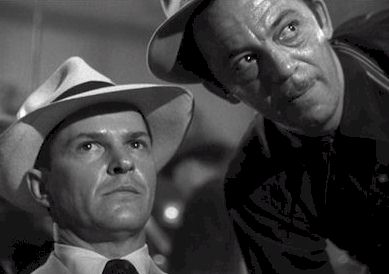
Ringside. Beady-eyed "Little Boy," at left, is the local boxing racketeer. He's told by his henchman
that it's been arranged - Stoker will take a dive in the third round.
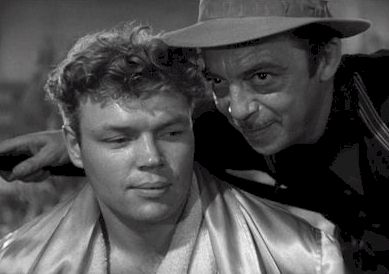
Stoker's opponent, the youthful Tiger Nelson, is reassured. Everything is set.
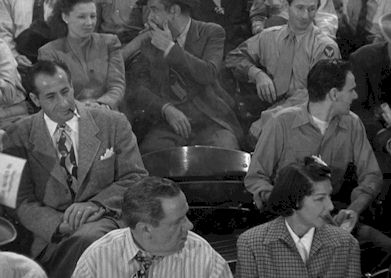
Stoker sees an empty seat where Julie should be. Not encouraging.
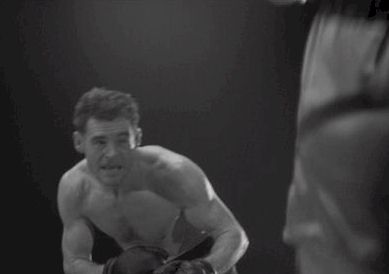
The fight begins. Stoker dodges and weaves.
While this match is at the bottom of the card, for us and Stoker it's the Main Event.
The boxing scenes contain undeniable authenticity: Robert Ryan held a national collegiate boxing title for four years,
and the actor playing Tiger Nelson, Robert Baylor, held the California heavyweight boxing championship.
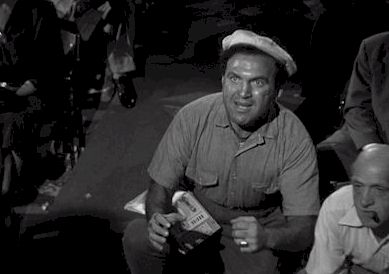
Stoker's main supporter, an over-age newspaper boy, shouts encouragement.
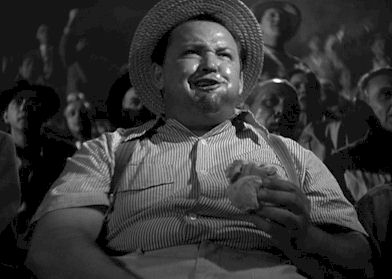
The fat man, one of Wise's ringside grotesques, looks on in contempt.
He will be shown again and again, each time with a different snack.
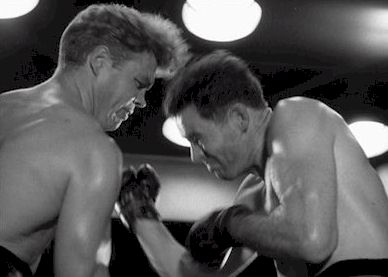
Close work. Stoker is showing determination and enthusiam - he can win this one.
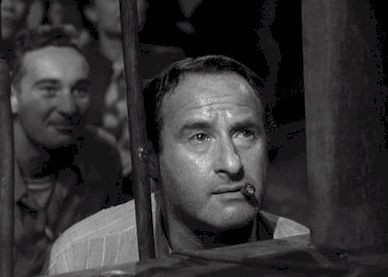
Stoker's manager looks on with worry.
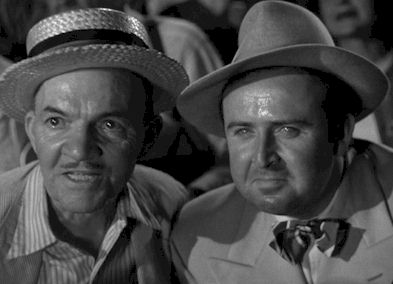
Another shot of the ringside onlookers who give this film interest: a vicious blind man and his friend, who narrates the play-by-play action.
Is Robert Wise making some unflattering comment about modern gladitorial sports? Undoubtedly.
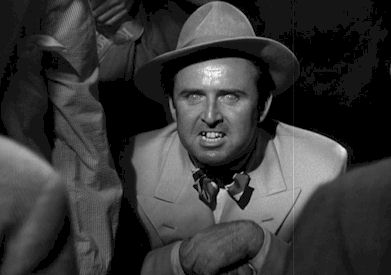
"Close his other eye, Nelson! Close his other eye!"

Stoker shows unexpected grit. This boxing sequence in this film is exciting and expertly photographed.
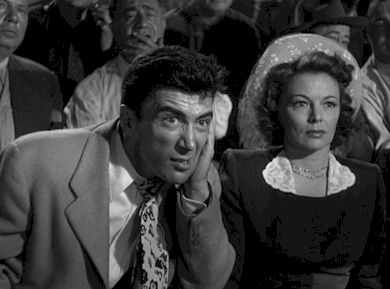
Another vicarious participant: the man who copies the boxers' moves, with his emotionally-detached wife.
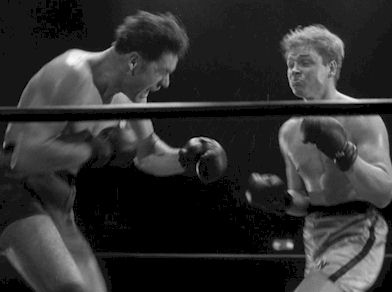
Stoker's still in the match, but is taking punishment from his younger opponent.
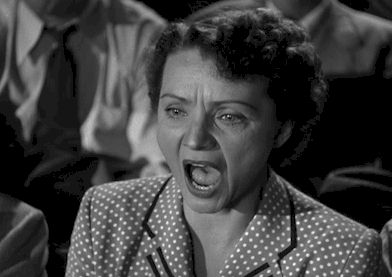
Another boxing fan: "Get up and fight!"
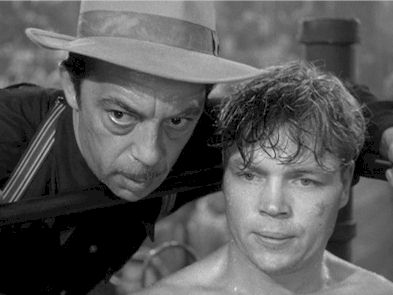
Between rounds. Nelson and his manager suspect that something's wrong.
Why is Stoker putting up such a fight?

Stoker takes a much-needed breather...
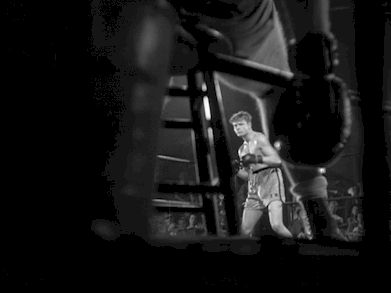
...but in clever photography Nelson is seen on his feet and eagerly awaiting the start of the next round.
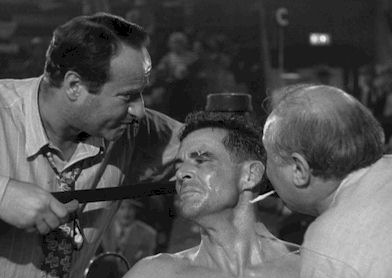
Just before the fourth round, Stoker is told by his manager that he has to take a dive. He refuses.
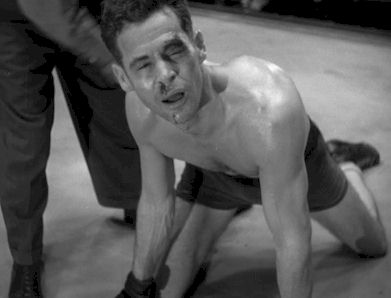
At one point in the match, Stoker is knocked down.
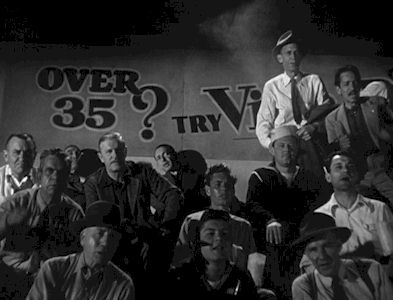
He peers at an all-too meaningful ad.
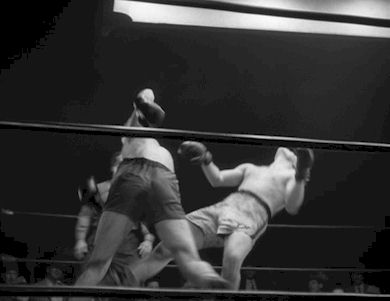
But in a determined rally, the exhausted Stoker lands a knockout punch and is declared the winner.
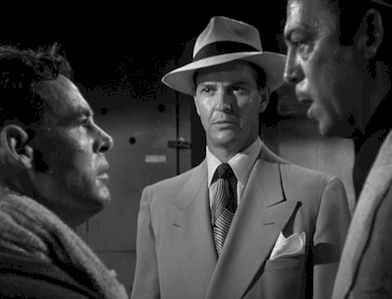
However, in the locker room afterwards Little Boy and his henchman omniously tell Stoker
that they aren't pleased, and will have business when he's finished dressing. In film noir, to win is often to lose.
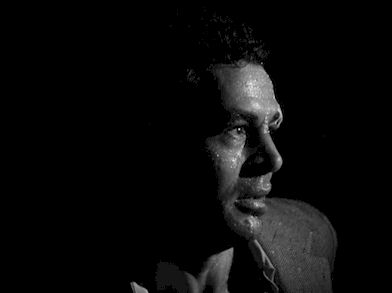
Now fearing for his life, Stoker desperately tries to evade Little Boy and his thugs.
A dark film becomes even darker.
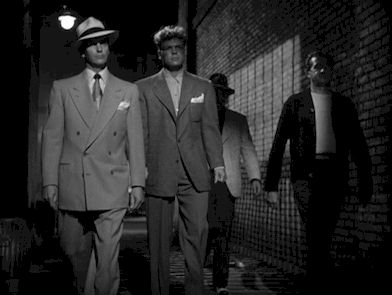
It's time to settle business.
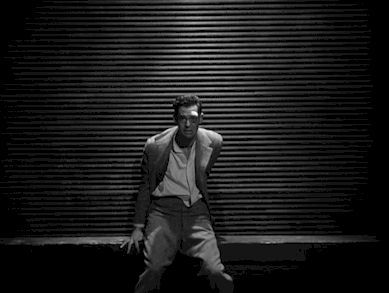
Trapped.
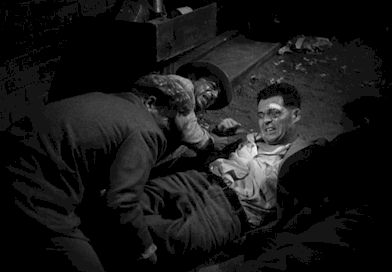
Stoker is overpowered.
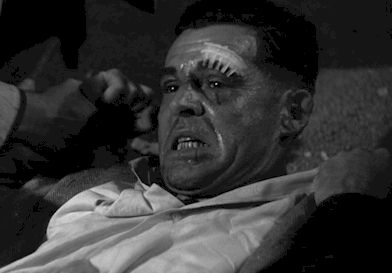
He gets a punch at Little Boy, who tells him that he'll never punch anyone with that hand ever again.
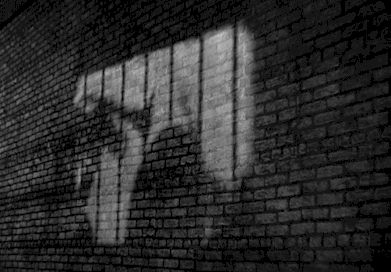
The camera turns to a metaphorical shadow of fierce musical playing and drumming.
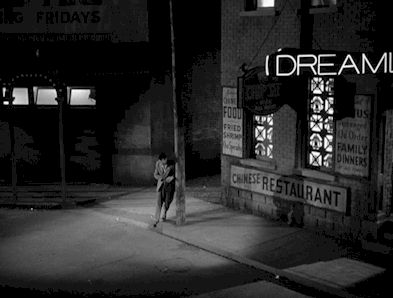
Badly beaten, with his right hand crushed and made useless by Little Boy, Stoker stumbles out of the alley.
(The placement of the electric "dream(land)" sign is no accident - many films noir have a nightmarish tone and setting.)
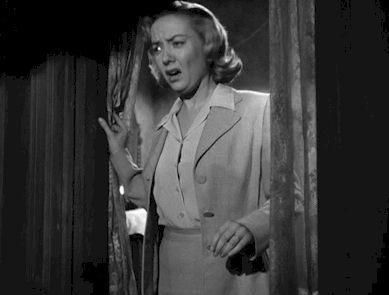
Julie sees her husband from the window of their hotel.
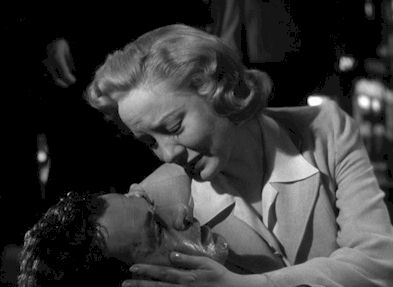
The ambulance is on its way.
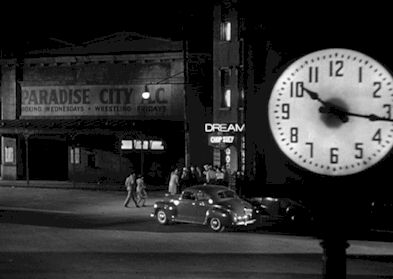
Stoker will fight no more, but he and Julie hopefully dream of other places and other occupations as a crowd gathers.
The clock indicates that 72 minutes has passed - the actual running time of the film.
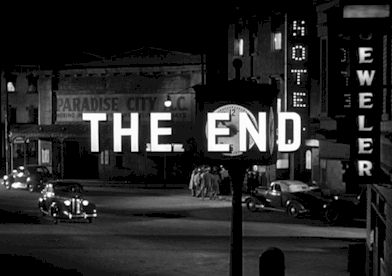
In film noir, even when the characters survive to live another day, there is still a weary lesson learned
or a painful experience, and even hopeful endings are downbeat.